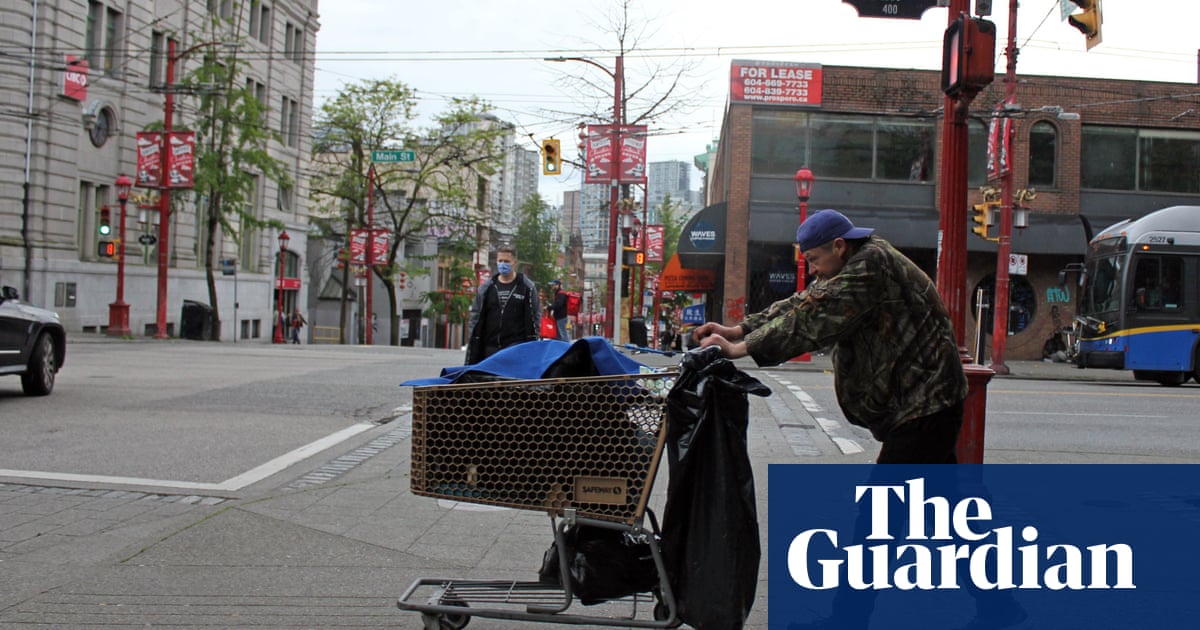The widely held stereotype that people experiencing homelessness would be more likely to spend extra cash on drugs, alcohol and “temptation goods” has been upended by a study that found a majority used a $7,500 payment mostly on rent, food, housing, transit and clothes.
The biases punctured by the study highlight the difficulties in developing policies to reduce homelessness, say the Canadian researchers behind it. They said the unconditional cash appeared to reduce homelessness, giving added weight to calls for a guaranteed basic income that would help adults cover essential living expenses.
Researchers at the University of British Columbia described in a report for Proceedings of the National Academy of Sciences how they tracked the spending of 50 people experiencing homelessness after they were given C$7,500.
The study built on a previous US survey of 1,114 people that tracked “public mistrust” in unhoused people’s ability to manage money, where participants predicted that recipients of an unconditional $7,500 cash transfer would spend most of it on “temptation goods” such as alcohol, drugs and tobacco.
The Canadian researchers followed up by actually giving that amount to 50 people who were homeless in Vancouver, and compared their spending with a control group of 65 homeless people who did not receive any cash.
They found the cash recipients each spent an average of 99 fewer days homeless than the control group, increased their savings more and also “cost” society less by spending less time in shelters.
“The impact of these biases is detrimental,” Jiaying Zhao, an associate professor of psychology at UBC who led the study, said in a statement. “When people received the cash transfer, they actually spent it on things that you or I would spend it on – housing, clothing, food, transit – and not on drugs and alcohol.”
Researchers ensured the cash was in a lump sum “to enable maximum purchasing freedom and choice” as opposed to small, consistent transfers.
Zhao said the study did not include participants with severe levels of substance use, alcohol use or mental health symptoms, because researchers felt those groups did not reflect the majority of homeless people.
“Rather, they are largely invisible. They sleep in cars or on friends’ couches, and do not abuse substances or alcohol,” said Zhao.
The study comes as lawmakers in Canada are under mounting pressure from advocacy groups to implement a universal basic income project that would help ease a cost-of-living crisis.
In 2017, the most populous province unveiled the Ontario basic income pilot, meant to study the effects of a universal basic income on 4,000 participants. The program was subsequently shut down by the province’s Progressive Conservative party after an electoral victory, with one minister calling the guaranteed funds a “disincentive” to work.
A bill is currently before the country’s senate to require Canada’s minister of finance to examine the idea of a nationwide basic income project and report on possible benefits.



Imagine living in a society where you have to perform research to prove that helping people, helps people…
Oh, wait… 🤦♀️